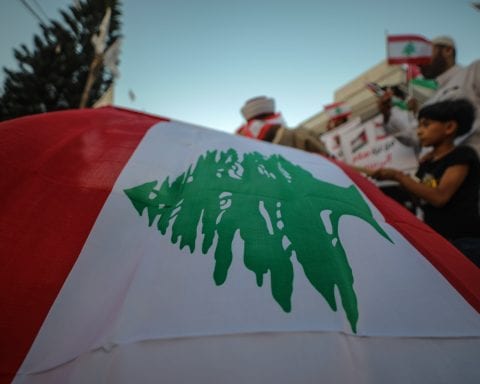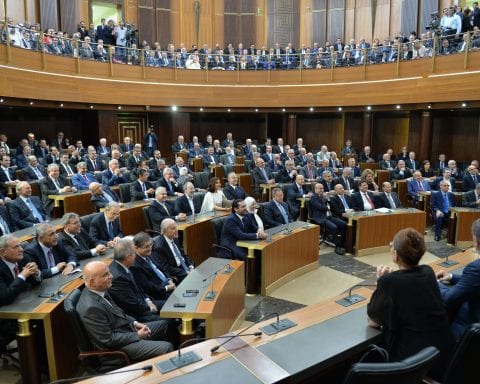Activities regarding economic and entertainment sectors have resumed in Beirut on Monday, and other Lebanese tourist centers have opened as the number of COVID-19 cases began to fall.
A few hospitals have publicized that they will close their COVID-19 departments, and the follow-up committee on COVID-19 preventive measures has recommended the allowing of the reopening of cinemas and theaters, provided they are filled only at 50 percent of their capacity.
Restaurants and cafes have also been allowed to extend their opening hours.
On 22 May, for the first time since August 4, tents were set up in the center of Beirut under the banner “Souk Al-Balad”, an initiative started by Association Ardona, with the support of Beirut markets and in cooperation with Solidere Company, to encourage small-scale producers to promote their artisanal or agricultural products.
Adib Al-Naqeeb, the director of the marketing department at Solidere told Arab News that, “Beirut markets are now in a state of stagnation as a result of the lockdowns implemented and the port explosion. Because the time is now more encouraging for people to get out of the lockdown, we wanted to host activities that make people happy and restore hope.”
Jean Beiruti, Secretary-General of the Tourism and Trade Unions Federation said that “people decided to resist the crises created by the politicians and to move on with their lives, otherwise they would commit mass suicide.”
He further said, “People reject the situation in which they found themselves. Therefore, we see that with the relaxation of COVID-19 preventive measures, they have returned to restaurants and cafes and to the nightlife, as far as they can afford to. These tourist institutions have decided to price their dollar exchange rate at 5,000 Lebanese pounds to continue operating even though on the black market the exchange rate is more than double amount.”
Beiruti pointed out that the high number of wedding reservations in hotels is because “the Lebanese who work abroad have not come to Lebanon for nearly two years, and they want to have happy lives and forget what politicians have done to them.”
Since August 2019, Lebanon has been witnessing a liquidity crisis which has caused the local currency to plummet to an all-time low. Due to the crisis, the country has witnessed major socio-economic protests against the government, which has failed to establish a permanent cabinet. The impact of this issue was augmented with the COVID-19 pandemic and the explosion at the Port of Beirut, which has caused massive economic losses.














